Jürgen Brauer
Birth : 1938-11-06, Leipzig, Germany

Director

Director

Cinematography
Film by Kläy and Brauer.

Writer
Film by Kläy and Brauer.

Director
Film by Kläy and Brauer.

Cinematography
The tragic love story between 17 year-old Gerat Lauter, who is in search of the truth, and his much older teacher Claudia, as it becomes a criminal case with state complicity in the chaotic GDR autumn of 1989.

Writer
The tragic love story between 17 year-old Gerat Lauter, who is in search of the truth, and his much older teacher Claudia, as it becomes a criminal case with state complicity in the chaotic GDR autumn of 1989.

Director
The tragic love story between 17 year-old Gerat Lauter, who is in search of the truth, and his much older teacher Claudia, as it becomes a criminal case with state complicity in the chaotic GDR autumn of 1989.

Cinematography
Ena lives on a remote farmstead. One stormy night, hydraulic engineer Sieghart appears at her door after his car gets stuck in the mud. Although Ena falls in love with Sieghart, she decides to marry her fiancé Mathias. She is incapabale of hiding her true feelings from her groom-to-be, and on the night before the wedding, Mathias forces the pair to join him for a carriage ride – with deadly results.

Writer
Ena lives on a remote farmstead. One stormy night, hydraulic engineer Sieghart appears at her door after his car gets stuck in the mud. Although Ena falls in love with Sieghart, she decides to marry her fiancé Mathias. She is incapabale of hiding her true feelings from her groom-to-be, and on the night before the wedding, Mathias forces the pair to join him for a carriage ride – with deadly results.

Director
Ena lives on a remote farmstead. One stormy night, hydraulic engineer Sieghart appears at her door after his car gets stuck in the mud. Although Ena falls in love with Sieghart, she decides to marry her fiancé Mathias. She is incapabale of hiding her true feelings from her groom-to-be, and on the night before the wedding, Mathias forces the pair to join him for a carriage ride – with deadly results.

Cinematography
Film director Andreas Kleinert belongs to the last generation of filmmakers that emerged in the former German Democratic Republic (GDR). Born in 1962, Kleinert's attitudes were shaped by the late 1970s, and particularly by the 1980s—a period of increasing disillusionment. He wrote his thesis on “Levels of Consciousness in the Film Poetry of Andrei Tarkovsky,” the late Soviet film director who made a name for himself in the pre-perestroika years with bleak films. As Kleinert completed his film academy studies with his graduation film, Leb' wohl, Joseph ( Farewell, Joseph, 1989), the Berlin Wall fell, heralding the collapse of the GDR. Kleinert won the main prize for his diploma feature film, Leb' wohl, Joseph, at the Munich International Festival for Film Schools. The next year, this remarkable black-and-white Kafkaesque film of cryptic symbols and enigmatic metaphors was invited to compete at Locarno.

Writer

Cinematography

Director

Cinematography
In 1938, a young woman leaves Germany to search for her love, Erich, in Reichenburg, Bohemia. Erich is secretly fighting the fascists, so Hilde ends up becoming a housemaid in the home of a German joiner in order to carry on their relationship. The joiner's son notices the passionate love shared between Hilde and Erich. To him, the young lady embodies the feminine ideal. When Hilde receives news of Erich's death, she descends into an uninhibited lifestyle in an attempt to forget.

Writer
In 1938, a young woman leaves Germany to search for her love, Erich, in Reichenburg, Bohemia. Erich is secretly fighting the fascists, so Hilde ends up becoming a housemaid in the home of a German joiner in order to carry on their relationship. The joiner's son notices the passionate love shared between Hilde and Erich. To him, the young lady embodies the feminine ideal. When Hilde receives news of Erich's death, she descends into an uninhibited lifestyle in an attempt to forget.

Director
In 1938, a young woman leaves Germany to search for her love, Erich, in Reichenburg, Bohemia. Erich is secretly fighting the fascists, so Hilde ends up becoming a housemaid in the home of a German joiner in order to carry on their relationship. The joiner's son notices the passionate love shared between Hilde and Erich. To him, the young lady embodies the feminine ideal. When Hilde receives news of Erich's death, she descends into an uninhibited lifestyle in an attempt to forget.

Cinematography
The tale of young Gritta who lives with her father, an unsuccessful inventor. When her new stepmother tries to put her away in a convent she discovers some dark secrets there.

Writer
The tale of young Gritta who lives with her father, an unsuccessful inventor. When her new stepmother tries to put her away in a convent she discovers some dark secrets there.

Director
The tale of young Gritta who lives with her father, an unsuccessful inventor. When her new stepmother tries to put her away in a convent she discovers some dark secrets there.

Cinematography

Director of Photography
World War II is over and Heinrich, a young German boy, influenced by the Russians, starts to act according to Communist principles in a small German village.

Screenplay
World War II is over and Heinrich, a young German boy, influenced by the Russians, starts to act according to Communist principles in a small German village.

Director
World War II is over and Heinrich, a young German boy, influenced by the Russians, starts to act according to Communist principles in a small German village.

Cinematography
The wrenching story of a woman sentenced in 1934 to ten years in prison for antifascist activities. The love between her and her fiancée enables her to survive the tribulations of her time in prison, where she is one of few political prisoners.

Cinematography
The film tells the story of the smelter brigade of a steel mill whose members are connected by a strong comradeship. Among the workers are, for instance, young Rolf, whom everybody just calls "Lachtaube" and who always comes through for his co-workers, or the likable Hubert, who works as a simple smelter again after being dismissed as the head of the steel mill. Then, there is also the stubborn Manfred, who should have become a brigadier long ago because of his experience and his competence, but this privilege is refused to him because Manfred is not a party member. Ironically, it is Manfred who hears by accident about the plans of the mill to close down the old Martin furnaces – and to lay off the smelters. When the other men learn about the plans they enter the barricades for their jobs and force the plant′s management to face the workers′ demands and criticism.
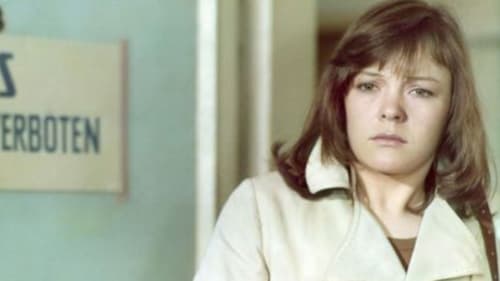
Director of Photography
Scenes from an East German marriage. A young couple, Sonya and Jens, are very much in love; they get married and have a child. When Sonya wants to go back to work after her maternity leave, they clash for the first time; Jens insists that she remain a full-time wife and mother. Until Death Do Us Part turns an actual police report into a gripping drama, as the director explores the depths of his characters' emotions, driving the conflict to a catastrophic climax.
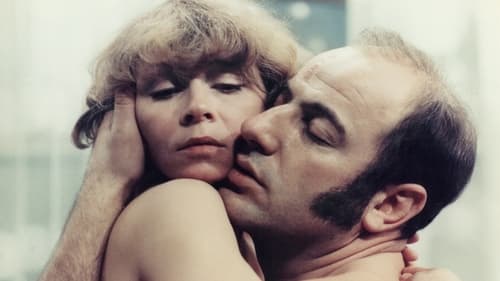
Cinematography
One year has passed since Max and Wanda got their divorce. Max has come to the realization that he wants his ex-wife back - no matter what the cost! So he concocts a sneaky plan: he asks Wanda to hide him from the police, who are apparently looking for him. At first, Wanda rejects all his attempts to restart their relationship. But she is soon unable to resist Max's convincing promises and even throws her lover out of the house. But then she discovers Max's lie.

Cinematography
Shortly after Chile's 1973 military coup, three men are fleeing across the Andes to Argentina. They witness the murder of a farmer by Chilean police and end up at the home of the farmer's heavily pregnant wife.

Cinematography
Germany at the end of World War II: Teacher Grübler lives in a small village in the Ore Mountains together with his 15-year old son Wolfgang. At school, the dutiful Grübler, a member of the NSDAP, teaches his pupils to volunteer for military service, but when his own son volunteers for the Waffen SS, he is nevertheless shocked and fears for his boy′s life. But Wolfgang starts to hate his father for his doubts: He thinks his father is a coward. In his desperation, Grübler chains and kidnaps his son to hide him in a dugout in the forest until the end of the war. In their shelter, father and son are fighting bitterly but when the Nazis who still believe in the "Endsieg" discover their hideout, Grübler sacrifices his life to save Wolfgang.
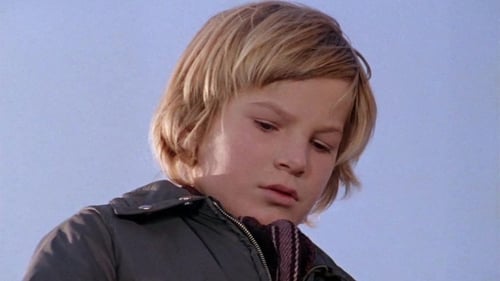
Cinematography
Eight-year-old Matthias dreams that he will someday become a pilot and his divorced parents will get back together. He waits yearningly for his ninth birthday because his father has told him the story of Icarus, and promised to take him on a sightseeing flight. When Matthias' father doesn't come home, he is devastated. He runs throughout the city, talks to his friend about the relationships of adults, looks for his father at his desk, and gets himself into conflict with the police. As he sits alone on the roof of a house, he comes to the conclusion that Icarus didn't plummet to the earth because he didn't listen to his father, but rather because his father had forgotten him.

Cinematography
Suse works as a truck driver on a major construction site. The young woman has a hard life behind her. She was foundling, was raised by farmers. Manne, the father of her child, wanted to escape from the GDR and is in prison. After he is released, Manne wants to live again with Suse and their child together. But she rejects him as well as another worshiper. Suse is more interested in the Soviet engineer Boris, but apparently not for her, since he can never remember her at their chance encounters. But a much bigger problem - and a difficult one - is Suse, when she is offered to go to the Soviet Union for six months.

Director of Photography

Cinematography
Soldier Ignaz Wolz returns from WWI with an immeasurable hatred of capitalist war profiteers. He decides to start his own revolution, but tries to stay away from the organized class struggle. He steals from the rich men and divides the wealth among the poor. One day, Wolz is arrested and sentenced to life in prison; seven years later he is released due to mass protests. More than ever, it is hard for him to fit in. He severs ties with his former companions, who reject his ideas, and leaves Germany.
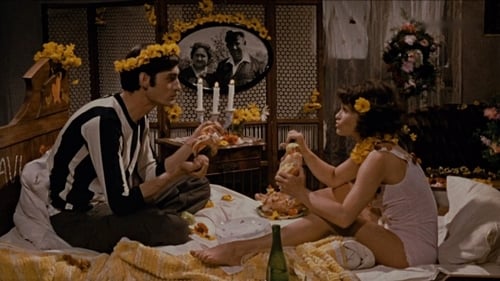
Director of Photography
Paul and Paula have had bad experiences with love: Paul is financially well off but has lost all affection for his wife, and Paula leads a troublesome life raising two children on her own. They meet and discover a strong passion for each other. Life seems like a dream when they're together - but their short flights from the burdens of reality are once and again interrupted by Paul's ties to family and career.

Director of Photography
World-famous geneticist Professor Hülsenbeck is a man of integrity who refuses to mix science and political gain. When his findings are being used to harm humanity, he immigrates to the USA in 1933 in protest against Nazi racial politics.
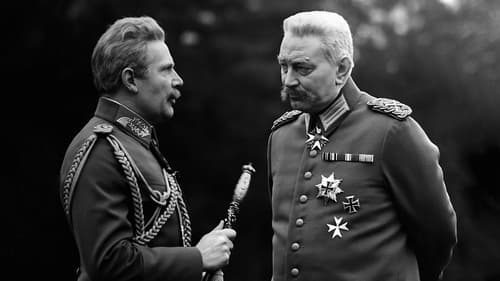
Cinematography
October 1918: Karl Liebknecht is released from prison and Berlin workers celebrate his release. Although WWI is almost over, the German Kaiserreich in vain sends its last reserves to the slaughter. The working class is in a rebellious mood; the uprising of Kiel’s sailors against war and militarism sets off a call for revolution led by Liebknecht. On November 9, Liebknecht declares the Free Socialist Republic of Germany. But pro-Kaiser military and right wing Social Democrats oppose him.

Director of Photography
Günter Walcher, 40-years-old, is a hardworking, apolitical West German businessman caught in a moral conflict. He is offered a promotion to become the head of a division—on the condition that he find a reason to fire Zacharias, a communist and the work council chairman.
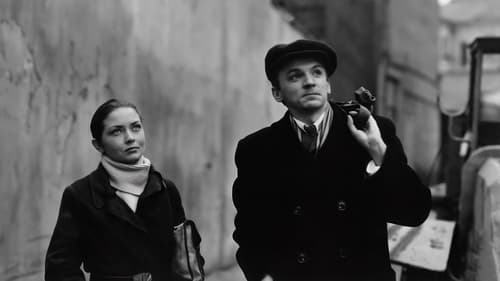
Cinematography
A train travels through the vastness of Russia, a train with German prisoners of war returning home, and Viktor Kleist, a young German communist from an intellectual home in Munich, travels back home with them. During the journey, the stations on his way to Lenin wake up again.

Director of Photography
Five-year-old Peter and his older brother Hans drop the Christmas present for their parents in the middle of the road and it gets flattened by a car. Deeply distressed, they go to a Christmas fair and buy a lottery ticket with their remaining money. To their delight, they win a washing machine! Peter is especially excited when Santa Claus shows up and promises to transport the machine for him, but the old man instead vanishes with the boys' gift. Hans is convinced that Peter has been conned and chases after the fleeing Santa. But Peter simply cannot believe that Santa Claus could be anything other than kind and helpful.

Cinematography
In Scotland in 1751, young David Balfour is shanghaied aboard a ship where he meets Jacobite rebel Alan Breck Stewart with whom he escapes to the Scottish Highlands, dodging the redcoats.

Cinematography
It’s the spring of 1945 in a small resort town on the Baltic. Günter is 16 and firmly believes that the Germans will win the war. During the hunt for a forced labourer who is on the run, Günter catches him and watches as he is shot to death. He proudly accepts the award of an Iron Cross before being shipped to the nearby front as part of the last contingent of troops. He is quickly captured by Soviet soldiers, but manages to escape and return home. When the town is occupied by the Red Army, Günter is arrested for the murder of the forced labourer. The film was banned in 1968 before it was completed, and a large portion of the negative was later destroyed.
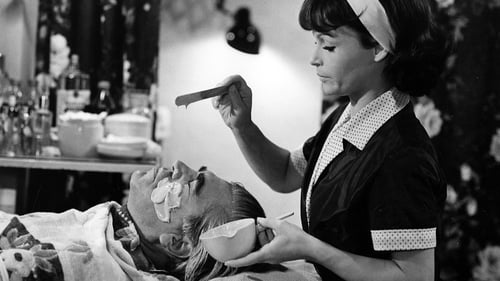
Director of Photography
Ewald Honig can't break his bad habit. Hardly has he crossed over into the GDR when the strapping, well-built man in his late fifties once again starts courting ladies with fraudulent intentions. His daughter Ina, burdened with the same genes, specializes in married men in their prime. Two criminologists are on the Honigs' trail, but they soon have enough to handle just dealing with each other. Meanwhile, Honig and his daughter have left their wayward path of their own accord.

Cinematography
Little Tim Tammer, the son of a lighthouse keeper, lives right on the Baltic Sea beach, but his remote home often leaves him feeling lonely. When Young Pioneers pitch their tents nearby, he is overjoyed and quickly makes new friends.

Cinematography

Director of Photography

































